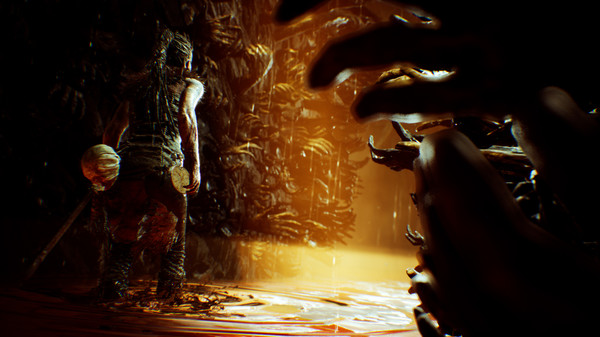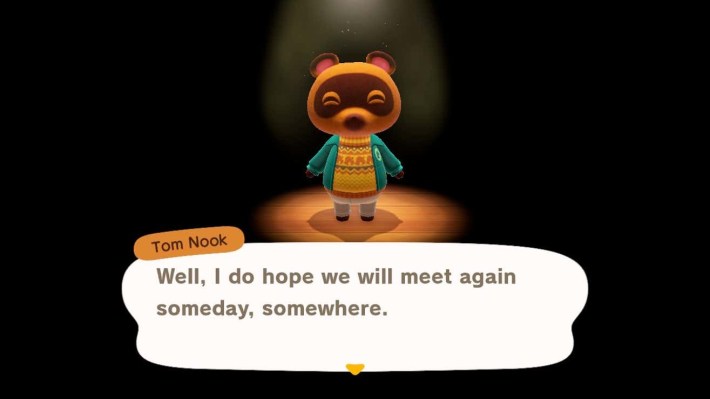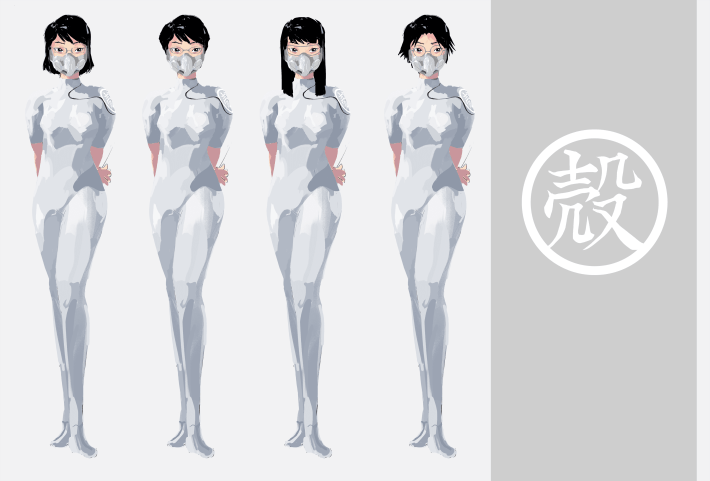I’m a big proponent of discovering a video game at the right moment for me, rather than through incessant ad campaigns. As indie developer sunset visitor 斜陽過客s speculative sci-fi adventure game 1000xResist approaches its first anniversary, I wanted to take a moment — not to dive into the specifics of the game itself, since it’s one best left unspoken to preserve the experience for others curious to give it a whirl — but to reflect on how it impacted my life.
1000xResist joined a pantheon of games that found me at a crossroads and became a guide, a lifeline, and a quiet companion, helping me navigate hard times. I first experienced this phenomenon when I let Hellblade: Senua’s Sacrifice’s final battle sit unfinished for two years, only to return to it as a more seasoned adult to experience its message far better than a college sophomore attempting to complete it in an evening. Back in 2017, I was already weighed down by the suffocating reality of feeling even more like a minority as a Black journalist in Cheyenne, Wyoming, in the wake of Colin Kaepernick taking a knee and Trumpism sharpening the feeling that championing my existence was like talking to a brick wall.
After I wrote an op-ed in support of Kaepernick’s protest, I received hate mail from a group claiming to be the Ku Klux Klan, which I later learned was a hoax. I put on a brave face, downplaying how fucked up and unsettling the whole situation was, trying to push through and move forward like Senua had in her odyssey.

But that moment set the first domino falling, nudging me toward quitting journalism before I had barely begun. Carrying all that on top of not wanting to have a virtual misstep leading to a permadeath of Senua’s perilous journey wasn’t something I wanted on my conscience, even if, in retrospect, that was a silly reason to put the game down. When I finally hit credits on it years later, I was in the comfort of my hometown of Chicago and giving journalism a go once more.
It happened again in 2021 when Animal Crossing: New Horizons transcended its shelf life as a pandemic-era socialization solution, becoming something more personal for me when I deleted my ex’s save file from my Nintendo Switch. Wandering through my neglected island, the last lingering villagers drifted toward me like ghosts to ask about my former partner, unaware of the shift that had already occurred. It was rough, especially given I’d only come back to dust things off ahead of the game’s final updates. And there was the bell-grubbing landlord Tom Nook, a character I’d openly trash-talk whenever I booted up the game, sitting me down for a virtual therapy session as he walked me through the deletion process. As Black Mirror as it was, Tom Nook’s flavor text softened the act and gave weight to the finality, as my rudimentary gamer decision helped reclaim a space I’d once shared with someone else.

The jester who scribes my life would perform a gaming hat-trick last year with Like A Dragon: Infinite Wealth unexpectedly helping me process my layoff from Kotaku. Before it happened, I always felt destined to review a Yakuza game, being one of the three writers at the time who were absolute freaks for the series. So when I finally got the chance to do so elsewhere months after my layoff, I wasn’t prepared for the gutpunch of its opening hours. What was supposed to be packing my bags for an island getaway instead had me unpack the trauma I’d shoved aside because Ichiban got laid off from his job at Hello Work.
Sure, the circumstances were as over-the-top as any Ryu Ga Gotoku storyline, but that didn’t make the moment less stark for me. I wasn’t as blindsided as Ichiban, who strolled into work like any other day — I woke up to Slack messages knowing something bad was bound to happen to me because it was happening to others. For reasons I still don’t fully understand, I chose to go into the office to receive the news in person, which led to me crying on the CTA, gathering up what little figures I’d had at my desk, and retreating to the safety of my mom’s apartment just in time for a brief, impersonal call from the adults in the room giving me a hi-bye weeks before my birthday.
Like Ichiban, I threw myself headfirst into the next thing, blinking away tears to fire off emails and call colleagues, scrambling to set up anything that could be a next step minutes after the call ended. Thankfully, after some heart-to-heart fireside chats and video game reassurance drawn from party members championing Kiryu’s farewell tour in Kamurocho, I came to terms with letting my raw anger and sadness simply exist. More importantly, I learned to give myself space to revisit old haunts — not just to reminisce but to finally indulge in hobbies I spared from being commodified by the relentless churn of SEO-driven blogs.

Unfortunately, reality had little patience for sentimentality. Bills still needed to be paid, so I dove headlong into the fucked up world of permalancing as if nothing had ever changed.
After getting a brief gasp of air, I wrote blogs and articles just as I always had, only this time without the safety net of insurance or a fixed salary to fall back on. Until recently, I was constantly grinding to stay ready so I wouldn’t have to get ready, jumping on any prospect that arose as I crunched numbers in Google Sheets to calculate how much I’d have to do weekly to make ends meet. I was chasing gigs at outlets that paid $30 per article, angling for better rates on reviews, tightening my belt when invoice cycles annoyingly paid out 45 days after the fact, as if landlords accepted "rent on layaway" as a reasonable explanation for overdue bills.
I wasn’t a person. I was a function: Writer. A reality made more painfully clear after too many late-night egosearches, watching my title morph erratically with each passing article I’d forgotten as quickly as I submitted them: Kotaku writer, contributor, freelance journalist, writer, journalist. A value marker dictated not by who I was but by how Google labeled me based on my output.
At this stage, I had abandoned game reviews — a choice born from impostor syndrome and the lingering void that followed each published critique I’d crunched weekends to write to allot time to continue permalancing. No review ever felt complete. Once they were live, they became a permanent mark, a legacy that would outlast me, yet there was always something I could refine. A sharper turn of phrase, a more evocative metaphor — I could mold my words endlessly and still feel they fell short. No matter how often I filled my phone’s notes app with carefully crafted similes and phrases I spontaneously encountered daily, attempting to push my writing to a level even when I was asked to churn out nothing blogs to meet a quota, writing stopped being fulfilling.
I met with the harsh reality that outlets weren’t looking for niche game critiques. Budgets were tight; publications wanted SEO-driven trend pieces, retrospective anniversaries of blockbuster games I never had the financial privilege to play growing up, or mind-numbing busy work I no longer had the energy to force myself through. So, the choice to step away became less about preference and more about inevitability. I felt a husk of my former self, lacking words with merit to contribute to the space meaningfully aside from feeding the machine with work that didn’t move me.
Then 1000xResist was released.
1000xResist caught my attention not because it was a piece of speculative fiction that could draw aesthetic comparisons to Nier: Automata. There was an innocuous post about where it had drawn its inspirations from, citing Isaiah-bait media like Wong Kar-wai’s In the Mood for Love and Satoshi Kon’s Millennium Actress — films I’d recently found comfort in during the lag time of my unemployment. One thing led to another, and I played the game and found myself carnally empathizing with its protagonist.
Watcher was one of six clones with utilitarian names like Principle, Knower, Fixer, Healer, and Bang Bang Fire. Watcher’s duty was to observe and interpret the fractured memories of their deity, ALLMOTHER, the entity heralded for guiding humanity through a catastrophe reminiscent of the pandemic. The deeper Watcher instigated, the clearer it became that this supposed truth was anything but. The parallels between ALLMOTHER’s influence and the ruthless cycle of C-suite executives, ready to laud praises at a writer’s talent being integral to their organization only to discard them in the name of cost-cutting efforts, were impossible for me to ignore. So watching Watcher lash out at ALLMOTHER, plunging a blade into her back in a defiant, in medias res opening cutscene, shot exquisite and vengeful schadenfreude I can still see behind closed eyelids.
1000xResist’s setting, a supposed Garden of Eden, also eerily mirrored the crumbling state of games journalism, or at least my feelings toward it — a landscape far from a paradise where eager newcomers jockey for entry. The games journalism industry was a collapsed terrarium, where its denizens clung to the hope of reviving traditions that no longer had an infrastructure to sustain them. Despite this decline, replacement clones in 1000xResist, known as Shells, traipsed through their apocalypse, eager to take over a function even if it came at the demise of a sister who came before them — a feeling I’d wrestled with when job postings would rear their head from the latest string of unnecessary layoffs.

Aside from prescient parallels to the dystopia of my own life, what struck me most about 1000xResist was how its post-apocalyptic setting fostered an intellectual playground where its cast dissected language, stripping words down to their functions like new-age Plato and Socrates. While some of the game’s early interpretations and misinterpretations of language are akin to the "Is this a pigeon?" meme, 1000xResist’s caption-worthy back-and-forths scratched the same itch I’d resigned myself to abandon eagerly as a writer: mulling over the inherent meaning of words, and how the gravity of their colloquialisms and double entendre folded within its usage. For example, the intrinsic value of a combination lock as a tool for safeguarding possessions can just as easily carry an extrinsic value, manifesting distrust in others. And so the game continued, prodding at meaning, layering interpretation upon interpretation, offering tongue-in-cheek winks when its characters caught on to something profound and exasperated sighs when their would-be Ozymandias observations weren’t that deep.
For me, playing 1000xResist wasn’t exclusively an existential exercise in dissecting faith, purpose, and identity — it became a conversation with myself. Was my writing still worth pursuing? Did my words carry any weight? Like Watcher, I arrived at a truth, one counter to the resignation of her sisters:
There are feelings worth getting incarcerated over.
Not in the literal sense, of course, but in the poetic. I finished the game not only wanting to write about it, but realizing writing — the thing that had once defined, shaped, and sustained me — was still worth doing.
A year ago, 1000xResist rekindled my love for gaming at a time when I thought that passion was in the rearview. While I’m still working through untangling my relationship with games and writing, the game was a reminder that there are still gaming experiences out there capable of pulling me out of my shell of self-doubt, sparking excitement to write about games that mesmerized me or left me unfulfilled. Not because it’s my function, but because it's my passion.


